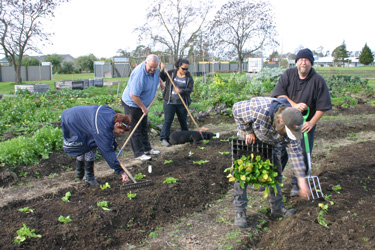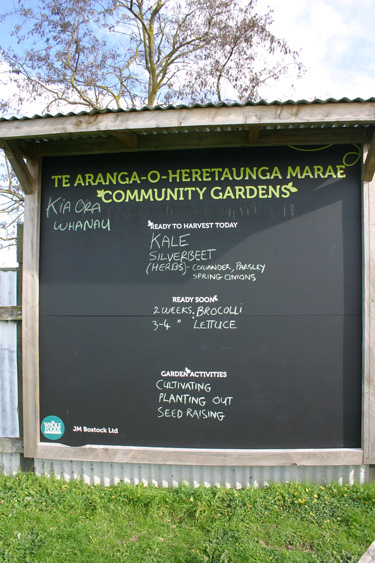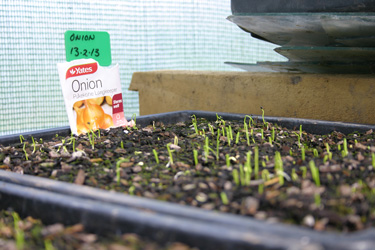Tilling the hearts of a community
Sarah Thornton finds a thriving organic garden that feeds a community - in more ways than one.
Gardens are created for a number of reasons; some to simply marvel at for their beauty, some to relax in, some to shade and feed us. But there’s a garden in the Hastings suburb of Flaxmere that has been created to fulfil a different need; the healing of a community.
Flaxmere often makes the news for the wrong reasons – crime, social deprivation and gang activity. Councillor and relentlessly optimistic Flaxmere campaigner Henare O’Keefe is deeply involved in creating more positive futures for his community and in 2008, through his U-Turn Trust and the Te Aranga Marae, the Flaxmere Community Garden was established. Five years on, it’s flourishing.
“The garden has fed hundreds, if not thousands of people,” says Henare. “I love the fact that it is owned by the people and fulfils its purpose. But it’s almost like the food is a bonus – the garden has a very important social function in that it brings the whole community together,” he says.
The organic garden is set on 5.3 hectares and consists of large vegetable plots and an orchard. It is open 24 hours a day, seven days a week for people from all over the region to help themselves. Funded mostly by “good will” from corporates, the community and a huge number of volunteers, the day to day running of the garden is managed by Gary Barclay, who also runs two ILP (Onsite Education) NCEA Level 3 and 4 horticulture courses at the site.
Although almost every vegetable imaginable is grown, root vegetables and brassicas make up the bulk of the plantings. “Brassica family vegetables such as broccoli, cabbage and cauliflower are popular, as are the root vegetables like potatoes and parsnips. Silverbeet is also very popular as it’s an essential ingredient in traditional boil ups – we harvest around 1200 of those every year,” says Gary.
Educating the community is a big part of Gary’s work and also ensures longevity of the crops. “If we teach people about the correct way to harvest, we can get more out of a plant, for example, if you break off a broccoli head in the right place, will get you a second flowering – and more growth equals more food,” he explains.
As well as the “staples”, Gary is constantly looking at growing other vegetables that are rich in nutrients and that also have a longer producing life, such as kale.
The community garden is completely organic, and uses its own compost based on the “lasagne” method, with layers of cardboard, paper, clippings, small prunings and manure, covered with carpet. “We have two composting stations on each garden area and as we harvest, we chop and dig in straight away,” Gary explains. Sprays are not used and Gary says he’s “never seen a snail”. Systems and processes have been developed over the years to ensure maximum productivity.
“We are more methodical now,” says Gary. “We keep comprehensive diaries and have a plan for each plot. At the moment we’re resting a couple of plots – it’s essential to rotate crops and ensure the soil is healthy.
Plants and seeds come from a range of sources – education provider ILP in New Plymouth, public donations and often from those who have harvested, “returning the favour”.
Over the next twelve months, Gary is reconfiguring the garden into six main plots, each measuring 53m by 20m. Corporates and individuals including Whole Foods USA, John Bostock, Anna Archibald, Unison and Holcim are helping with the transformation, providing guidance and funding for the work. As well as incorporating the existing plantings, the garden will have plots much like the English ‘allotments’ for Samoan and Tongan communities and schools. The orchard is also being extended and a citrus plot is planned for 2014. In two weeks’ time, volunteers will get their gumboots on and plant more than 1600 native trees to protect the garden against the prevailing westerly.
The garden is a much loved and revered part of Flaxmere. “We’re not only growing vegetables here,” says Henare. “We’re growing relationships, understanding and tolerance. And we’re growing a community.”

18-Aug-2015

Busy in the Flaxmere Community Garden


Growing onions from seed

